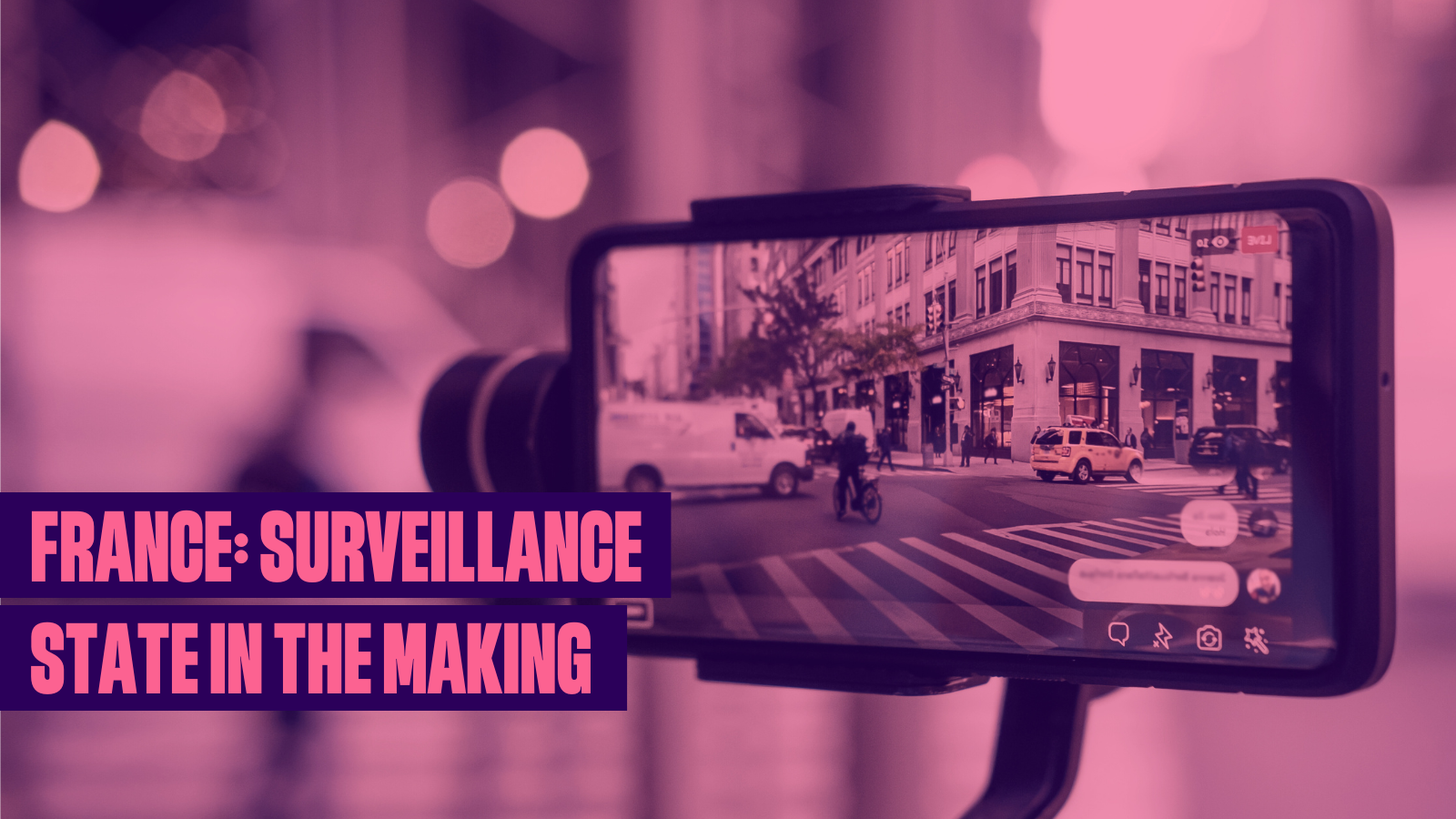
The High-Tech Hunt of Racialised People: France Gives Police Permission to Remotely Surveil Phone Cameras
France – France has recently passed a justice reform bill that gives law enforcement agencies a green light to surveil cameras, microphones, and geolocation on personal phones and other citizen-owned devices. This unprecedented surveillance power raises grave concerns over privacy violations, civil liberties, and the abuse of authority under the guise of national security.
The Trusty Old Excuse of ‘National Security’
The new legislation expands law enforcement’s surveillance capabilities to an alarming degree. It grants the French police even more power, allowing them to intrude into the lives of citizens by tapping into cameras, microphones, and geolocation data of their personal devices – all under the pretext of national security and combating terror offenses. These devices can be activated remotely and without the owner’s consent or knowledge, allowing access to the sound and image of those suspected of terror offenses. Once again, the excuse of ‘national security’ is twisted to justify the deployment of invasive technologies with little consideration of the impact it might have on the citizens it claims to protect.
THE EROSION OF CIVIL RIGHTS AND DEMOCRATIC PRINCIPLES SIGNALS AN ALARMING DOWNRIGHT SPIRAL INTO A SURVEILLANCE STATE, MUCH LIKE THOSE enacted by the AUTHORITARIAN REGIMES OF CHINA, RUSSIA, OR NORTH KOREA.
Phone Surveillance and the Cycle of Police Brutality
It is essential to question the proportionality and efficacy of such measures in combating crime and police brutality. The use of surveillance technologies will not prevent crimes from happening, nor will it solve the systemically entrenched issue of police brutality that pesters French communities. In reality, the extended surveillance capacity will only empower the vicious self-perpetuating cycle of police brutality and profiling that targets racialised communities and yields tragic results. It will continue to disproportionally profile and register the faces of those who, like the 17-year-old Nahel M., murdered in July by the French police, are systematically Othered. It will afford ‘Big Brother’ even more power to target, control, and criminalise those who are already facing systematic exclusion, racism, and police brutality in French society.
Under the favourite excuse of national security, the new justice reform opens the door for law enforcement:
- to spy on racialised communities,
- incarcerate as many racialised youths as possible,
- deter the public from participating in any future protest due to fear of criminalisation and imprisonment, and
- exacerbates the risks of abuse, surveillance, and historical mistreatment of activists and human rights defenders, which are often targeted and detained in the name of national security.
France’s Reckless Flirtation with Surveillance
At its core, the reform is a blatant violation of fundamental human rights, including the right to privacy, freedom of expression, and the right to protest. Adding to the concern is France’s recent authorisation of mass video surveillance and AI software during the upcoming 2024 Summer Olympic and Paralympic Games, which makes it the first EU country to authorise AI surveillance.
Since many competition venues are located in racialised neighbourhoods, the decision is spurring anxiety among residents who fear constant monitoring – not just during the games, but long before and after the events conclude. The systems will be operational six months ahead of the Olympics and there is no indication that this surveillance technology will be removed or even deactivated after the Olympic torch leaves the country. Such violations of human rights – that we have already seen in the 2016 Summer Olympics in Rio, Brazil, where the cameras installed during the games were never removed – have no place in democratic European states.
IT IS TIME FOR THE CIVIL SOCIETY TO OPENLY (RE)CLAIM OUR PUBLIC SPACES AND DEMAND A STOP TO THE HIGH-TECH HUNT OF RACIALISED PEOPLE.
The High-Tech Hunt of Racialised People
It is impossible to avoid drawing eery parallels to dictatorships in other parts of the world. The erosion of civil rights and democratic principles signals an alarming downright spiral into a surveillance state, much like those enacted by the authoritarian regimes of China, Russia, or North Korea. The shift ironically undermines the very values that France so strongly prides itself on and likes to champion on the international stage, particularly when criticising other governments for surveilling their citizens and detaining activists and protesters in the name of national security.
It is time for civil society to openly (re)claim our public spaces and demand a stop to the high-tech hunt of racialised and ethnic minority people. This is an opportunity for France, and the rest of EU, to transform their law enforcement strategies. Rethinking contemporary policing is only possible by working hand in hand with the communities most affected by excessive violence, a solution we discuss in detail in our report The Sharp Edge of Violence: Police Brutality and Community Resistance of Racialised Groups. It is time to resist, seek community redress and reward those grassroots organisations and collectives who, day by day, work with those who suffer the consequences of police violence.
Oyidiya Oji is the Advocacy and Policy Advisor on Digital Rights at ENAR.
Sandra Alloush is an advocacy officer at New Women Connectors, as well as an award-winning independent journalist and filmmaker.



